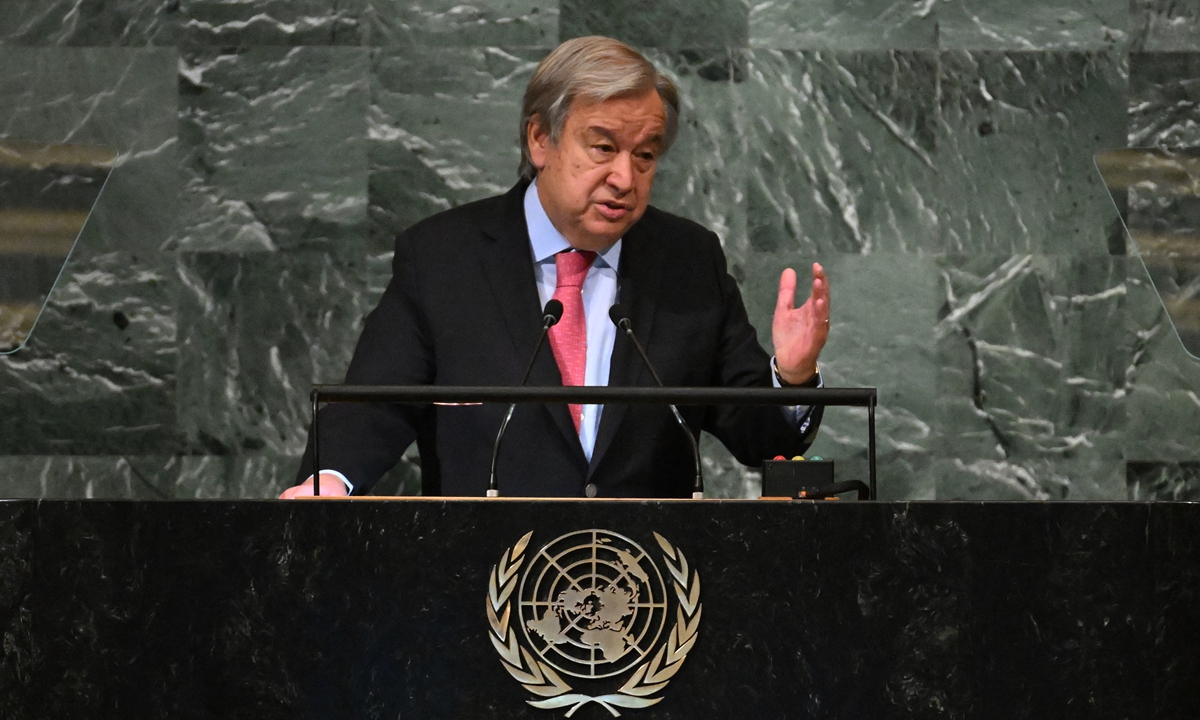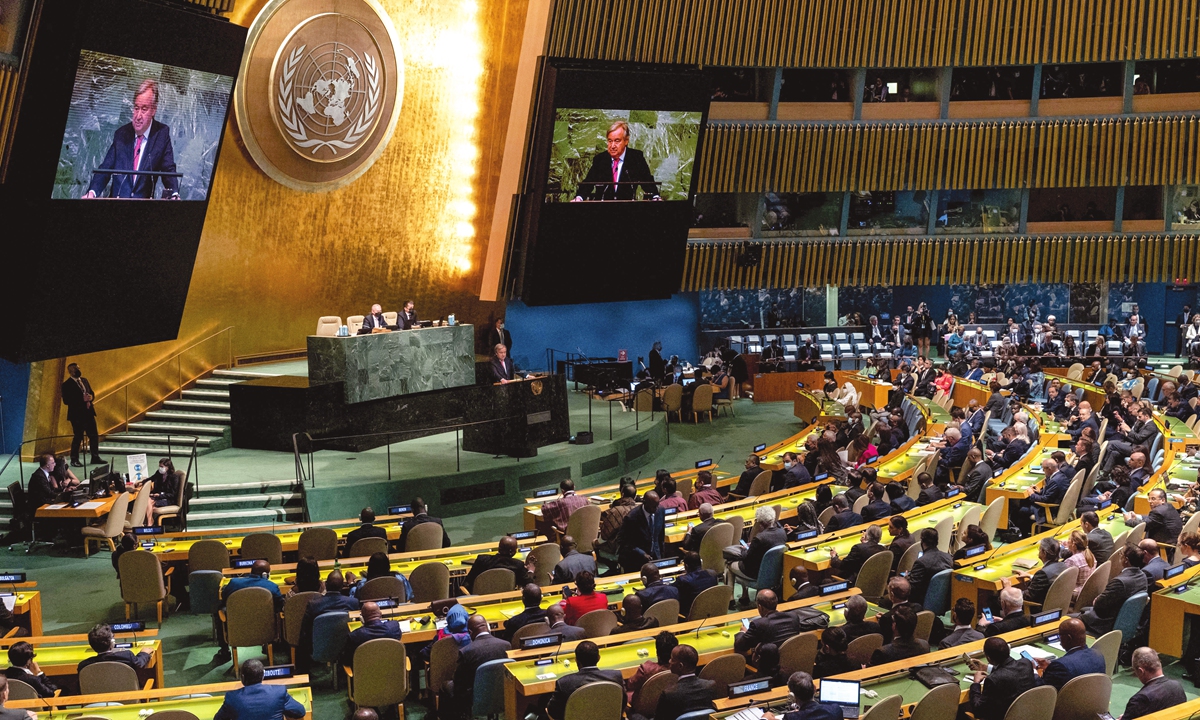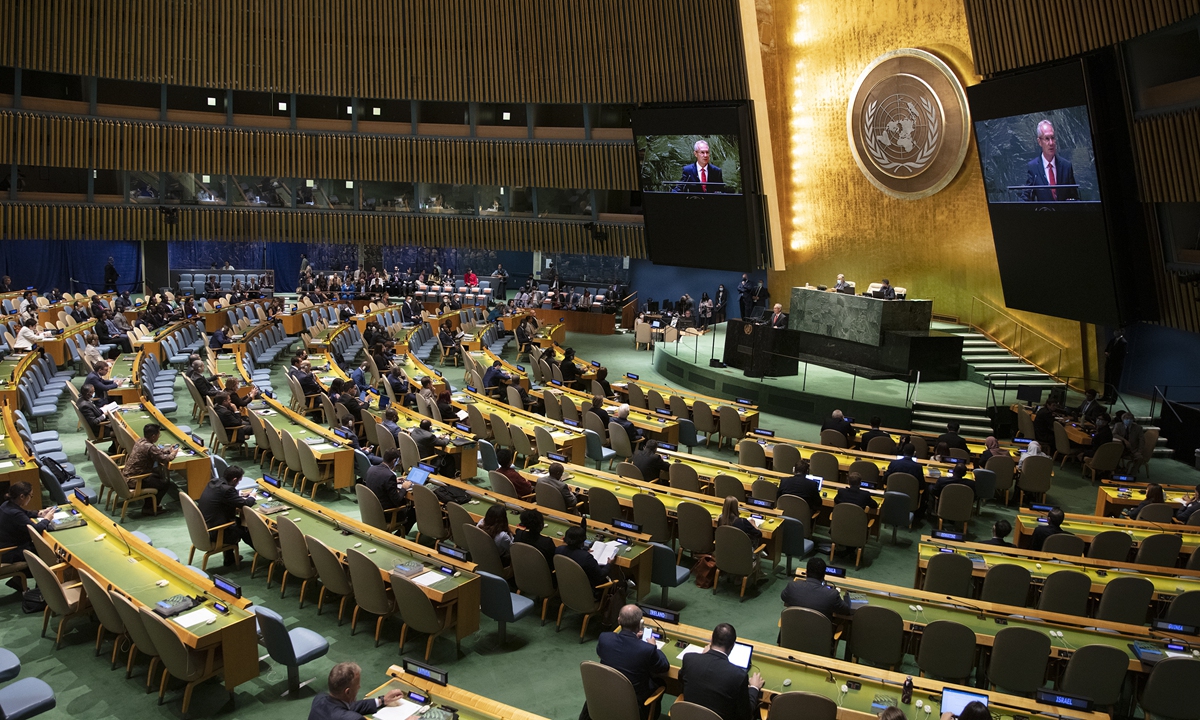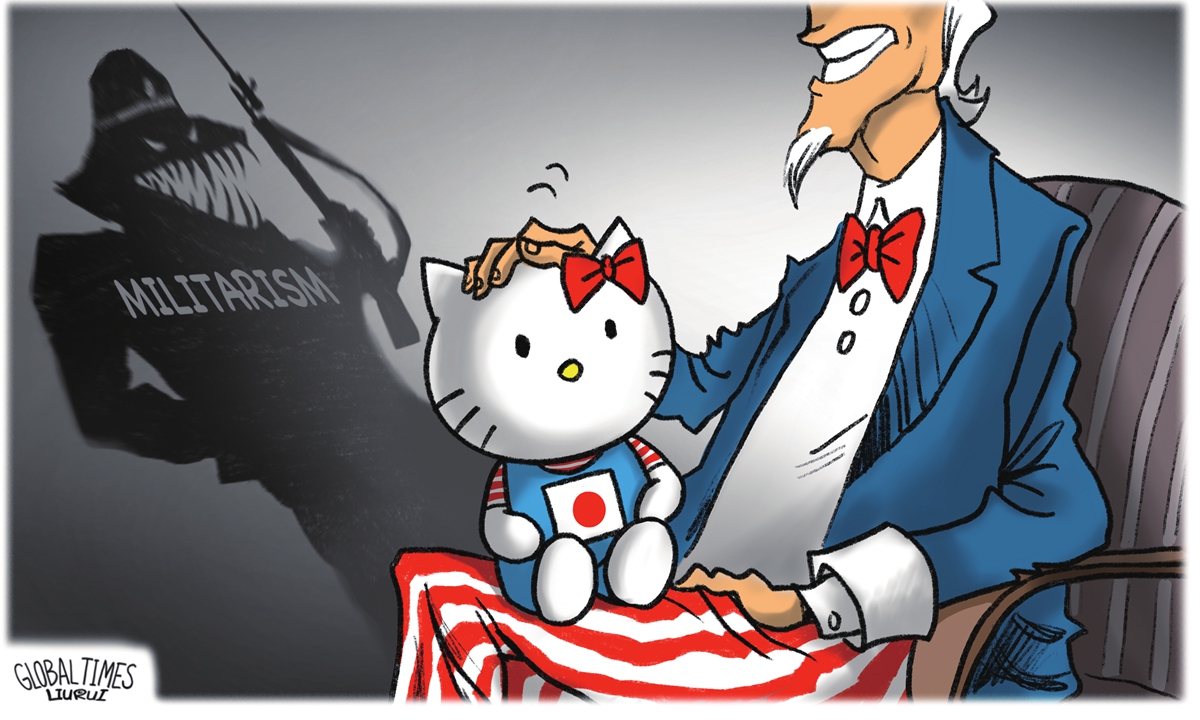
UN Secretary-General Antonio Guterres addresses the 77th session of the United Nations General Assembly at UN headquarters in New York City on September 20, 2022. Photo: AFP
The general debate of the 77th session of the United Nations General Assembly (UNGA 77) is currently under way. This is the first entire in-person meeting at the UN headquarters since the outbreak of the COVID-19 pandemic. The meeting is being held when the world is severely divided. It hence should be an opportunity for all parties to strengthen communication, bridge divergences, and join hands to cope with global challenges, while being cautious of certain countries' attempt to turn the general assembly into a tool to create division, and escalate conflicts and confrontation. In his opening remarks, UN Secretary-General Antonio Guterres warned that progress made on coping with challenges is being held hostage to geopolitical tensions. "Our world is in peril - and paralyzed … No cooperation. No dialogue. No collective problem solving. But the reality is that we live in a world where the logic of cooperation and dialogue is the only path forward," he stressed. Guterres' warning is both a description of the status quo and a concern about the current situation of the UN. However, to what extent can such warning be translated into actions by some key countries remains a big question to be answered. Several media reports mentioned that this week's UNGA 77 general debate will be dominated by the struggle between the US and its allies on the one side, and Russia on the other, over the Ukraine crisis. The US and its allies are committed to launching a campaign to "isolate Russia." In addition to carry on strong condemnations against Russia, they are ganging up to pressure neutral countries. It is reported that the Russian side will discuss not to allow the US and the West to launch a hybrid war in Ukraine. Many developing countries and aid groups worry that the diplomatic conflict over Ukraine will undermine a key opportunity to address famine, the climate crisis and other issues of concern. Amid the interwoven changes and chaos of the world, the UN is also undergoing a test about profound differences. Will it let itself be kidnapped by some forces and turned into a tool for targeting specific countries, and promoting group politics and the so-called alliances of values? Or will it hold on to promoting democracy in international relations, adhering to comprehensive concepts of development and security, and uniting the vast number of countries to solve common problems via genuine multilateralism? The history of the development of the UN indicates that these two forces have always had a tug-of-war. Whether the forces of solidarity and cooperation that focus on the future of mankind can overcome the forces of division and confrontation that rest on geopolitical logic will affect UN's role and hundreds of millions of people around the world in the future. There is one thing that cannot be denied: Although the UN General Assembly general debates have been filled with lots of conflicts and confrontations, the UN remains the core of global governance nowadays and is in a key position to address a range of challenges, and the UN Security Council remains the core of the global system of collective security. It is for this very reason that the international community generally places high hopes on the UN system as a prioritized platform for pursuing a better vision of the world. Under such circumstances, how the UN can build consensus and promote unity requires courage and wisdom, and moreover, new ideas. In this process, it's significant whether the major powers choose dialogue and cooperation, or division and confrontation. It's learned from the lessons of World War I and II that the rule of "great power unanimity" has become the main operating rule of the UN mechanism. Especially in the current situation where the Russia-Ukraine conflict is escalating and humanitarian disaster is imminent, major powers should take the initiative to safeguard UN's authority and leave an "emergency channel" for diplomatic settlement of disputes through UN mechanisms, rather than instrumentalizing and ideologizing the organization and using geopolitical interests to kidnap it, making the complicated problem even more difficult to solve. This is a moral obligation, and a responsibility as well. In the statements that have been made during the meeting, representatives of many countries have mentioned "solidarity," showing that the problem has been noticed. However, there are divergences on the path to solve them. At the moment, we need to practice authentic multilateralism and work together to uphold the principles of the UN Charter. We suggest that the representatives of the participating countries carefully read the "Position Paper of the People's Republic of China For the 77th Session of the United Nations General Assembly," which gives a "Chinese proposal" for the current period of turbulent changes, a proposal for building common security and achieving common development.
There lies the desire to pursue an integrated and common view of security, instead of a unilateral view of security dominated by a single power, behind the strong calls at this session from developing countries to focus on famine and climate crisis while preventing the Russia-Ukraine conflict from monopolizing all the attention. We believe that the measure of whether a session of the UNGA is worthwhile should be whether the world is more fractured or less fractured afterward, and if there is more cooperation or less after the session. There could also be identification of responsibility for this.























